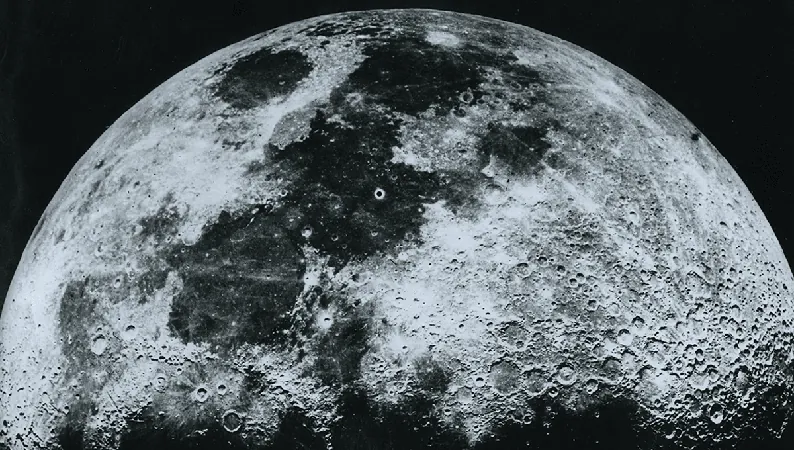
Breathtaking Moment: Astronomer Films Meteor Impact on the Moon!
2024-12-17
Author: Wai
Stunning Cosmic Event
In a stunning display of cosmic events, a Japanese astronomer has filmed an unknown object—believed to be a meteor—colliding with the Moon. This event is thought to be linked to the Geminid meteor shower, which lights up our skies every December.
The Geminids and Their Origin
The Geminids, first observed in the mid-1800s, are peculiar among meteor showers. Unlike most meteor showers that originate from comets, the Geminids come from an asteroid known as 3200 Phaethon. Discovered in 1983, Phaethon displays traits similar to that of a comet, leading many astronomers to describe it as a 'rock-comet.' However, it ultimately retains its classification as a near-Earth asteroid.
NASA's Investigations on Phaethon
This fascinating connection has led to extensive studies of Phaethon. Notably, NASA's STEREO spacecraft spotted a faint tail and rapid brightness around the asteroid during its closest approaches to the Sun in 2009 and 2012. These unusual characteristics suggest that Phaethon might be active, similar to certain objects found in the asteroid belt between Mars and Jupiter.
The Geminid Meteor Shower
The Geminid meteor shower remains active from December 4 to December 20, with the peak expected around December 13 to 14 in 2024. While meteor showers typically consist of small particles that burn up upon entering Earth's atmosphere, some larger meteors can survive the journey, potentially impacting celestial bodies like the Moon.
First Filmed Lunar Impact Flash
Astrophysicist Daichi Fujii from the Hiratsuka City Museum was the first to capture the spectacular lunar impact flash. 'I filmed it at 360 frames per second from my home at 22:34:35 on December 8, 2024. It has been incredible to see so many bright meteors and fireballs recently. The lunar impacts seem to be happening almost daily,' Fujii shared in a post on X.
Uncertainty Remains
Despite the evidence suggesting that the impact may have been caused by the ongoing Geminid meteor shower, there remains some uncertainty. Robert Lunsford from the American Meteor Society commented, 'While we consider the possibility of these flashes being linked to the Geminid shower, sporadic meteors still outnumber Geminids in ground-based observations, so we cannot be entirely sure.'
Conclusion
This mesmerizing phenomenon opens up discussions on the nature of meteoroid impacts and how cosmic events continue to unfold right above us. As technology in astronomy advances, more moments like this may be captured, encouraging curiosity and deeper understanding of the universe. Stay tuned for more updates on this remarkable astronomical event!





 Brasil (PT)
Brasil (PT)
 Canada (EN)
Canada (EN)
 Chile (ES)
Chile (ES)
 España (ES)
España (ES)
 France (FR)
France (FR)
 Hong Kong (EN)
Hong Kong (EN)
 Italia (IT)
Italia (IT)
 日本 (JA)
日本 (JA)
 Magyarország (HU)
Magyarország (HU)
 Norge (NO)
Norge (NO)
 Polska (PL)
Polska (PL)
 Schweiz (DE)
Schweiz (DE)
 Singapore (EN)
Singapore (EN)
 Sverige (SV)
Sverige (SV)
 Suomi (FI)
Suomi (FI)
 Türkiye (TR)
Türkiye (TR)